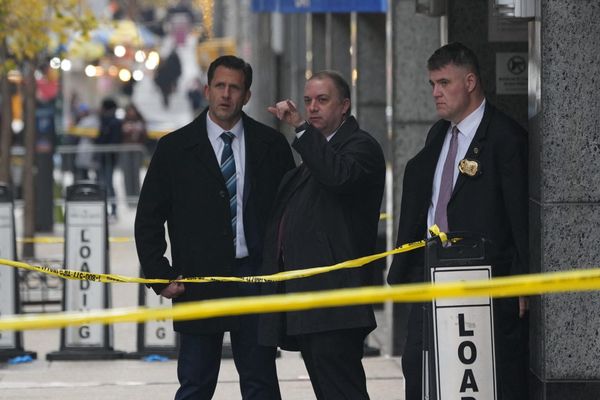
Berlin has reported a marked increase in attacks on asylum seekers and refugee shelters, amid a sharp rise in far-right crime and a hardening of German migration policy.
Official figures provided at the request of two local Green party lawmakers showed there were 77 assaults on asylum seekers and refugees in 2024 and eight instances of deliberate damage to residences housing them.
This compares with 32 targeted attacks on people and none on residences in 2023, one of the deputies, Ario Ebrahimpour Mirzaie, told the news agency dpa.
As a result of the assaults, 34 people needed treatment in hospital, according to the official data. These included 16 women, 14 men, two girls and two males whose age was not reported.
Thirty-seven suspects in the direct assaults on people were identified, 11 of whom were known to police. Authorities reported no concrete leads in the attacks on refugee shelters.
Jian Omar, the other Green deputy who sought the publication of the statistics, called the report an “alarm bell”.
“We demand a clear protection plan for refugees, a visible police presence at endangered residences, comprehensive prevention work and above all policies that clearly recognise rightwing violence and decisively fight it,” he said.
Berlin has about 35,000 registered refugees in official reception centres and dormitories and a further 10,000 in emergency shelters, for example at the former Tegel and Tempelhof airports, where conditions have been often criticised as substandard and overcrowded.
Officials from the state office for refugee affairs (LAF) told local media that all of its residences had plans in place to prevent violence, including round-the-clock security personnel at most facilities.
Earlier this month, LAF reported a steep drop in the number of new arrivals in Berlin to 1,761 people in January and February, down more than 35% on the same period in 2024 amid a decline across the European Union. Most arrivals in the German capital came from Vietnam, Moldova, Afghanistan, Turkey and Syria.
Ukrainians, who are exempt from German asylum application requirements, also arrived in smaller numbers during the first two months of 2025, at 1,722. In January and February 2024, 2,611 Ukrainian citizens fleeing the Russian invasion sought refuge in Berlin.
The figures mirror a national trend reported by the interior ministry in February revealing 218 “politically motivated” assaults on refugee shelters last year based on preliminary data, compared with 167 cases in 2023.
Federal statistics on crimes against individual asylum seekers, however, showed a decline last year to 1,905, down from 2,488 in 2023 – the highest number since the 2016 refugee influx under the then chancellor, Angela Merkel.
Clara Bünger, an MP for the far-left Linke party, which filed the request for the data, said the government needed to treat the problem urgently.
“The number of insults, threats and attacks against refugees has been worryingly high for years and it is outrageous that these conditions are accepted with a shrug by many politicians and members of the public,” she said, blaming anti-migrant rhetoric among both far-right and mainstream parties.
Bünger said those affected had come to Germany seeking protection. “But what they find is racist hostility and violence. We must never simply get used to that.”
In the town of Stahnsdorf, south-west of Berlin, in March, seven rightwing extremists allegedly tried to violently gain entry to a refugee shelter. When they were confronted by a security guard, they reportedly beat him, leaving him unconscious. Witnesses said that before the assault they heard a group outside the building chanting far-right slogans.
German authorities recorded a jump in rightwing extremist crimes last year of more than 17%, with 33,963 reported offences until the end of November 2024 including 1,136 violent attacks. Annual figures will be released next month.
The anti-immigration hard-right Alternative für Deutschland party made strong gains in the February snap election to win more than 20% of the vote. It is now the strongest opposition force in parliament, fuelled by growing voter anxiety over immigration, particularly following a series of violent attacks blamed on asylum seekers.
The Conservative leader, Friedrich Merz, who is due to be sworn in as chancellor on 6 May, campaigned on dramatically tightening border policy and bringing irregular immigration to a halt, after stricter measures already undertaken by the centre-left-led predecessor government.
A coalition deal with the centre-left Social Democrats reached this month watered down many of Merz’s stated aims, but laid out a range of tougher proposals including suspending family reunification for many refugees, coordinating with neighbour countries to stop asylum seekers at the frontier, and implementing plans for deportations to previously excluded countries such as Syria and Afghanistan.







